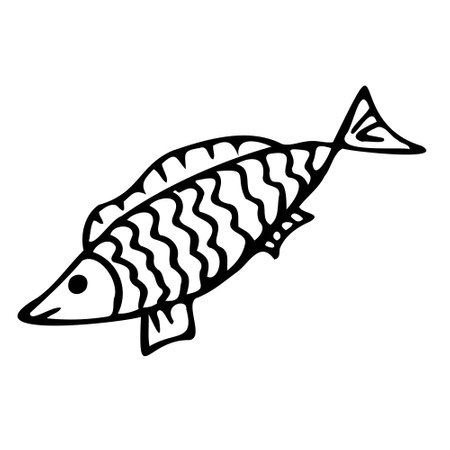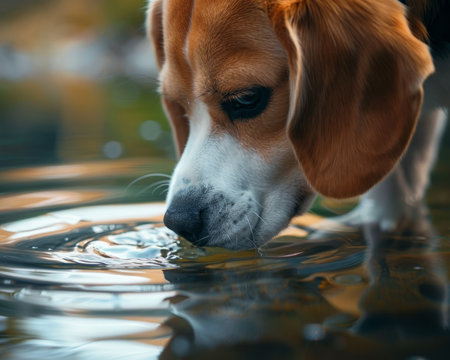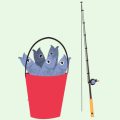Understanding Water Hardness: What It Means for Your Fish
If you’re keeping fish in the UK, understanding water hardness is a crucial first step to creating a healthy aquatic environment. Water hardness refers to the concentration of dissolved minerals, primarily calcium and magnesium, in your tap water. Across the UK, water hardness varies significantly—while areas like London, Cambridge, and much of the South East have hard water due to the chalky geology, regions such as Scotland, Wales, and the North West typically enjoy much softer water. This difference isn’t just an interesting fact about British tap water; it has direct implications for your aquarium. The type of water available in your area will influence everything from the species of fish that will thrive, to how you manage your tank’s chemistry. Both freshwater and marine aquariums are affected by these mineral levels. Some fish, such as African cichlids or livebearers like guppies and mollies, prefer harder water with a higher pH. Others—like tetras and angelfish—thrive in softer, more acidic conditions. Marine tanks also demand close attention to mineral balance for corals and other sensitive inhabitants. Knowing your local water hardness empowers you to make informed decisions about fish selection and tank maintenance. In the next sections, we’ll guide you through identifying your water type and making it work for your aquatic pets.
2. Testing Your Tap Water: Practical Methods for UK Fishkeepers
Understanding the specific qualities of your tap water is crucial for maintaining a healthy aquarium environment in the UK. Since water hardness and mineral content can vary widely across regions, it’s essential to test your water before introducing fish. Here’s a step-by-step guide to help you accurately assess your tap water using testing kits and by interpreting local water company reports.
Step 1: Gather Your Materials
Most UK aquarists use commercially available water testing kits, which can be purchased online or from local aquatic retailers. Choose a kit that tests for General Hardness (GH), Carbonate Hardness (KH), pH, and other key parameters such as nitrates and nitrites.
Common Parameters Measured
| Parameter | What It Measures | Ideal Range (for most fish) |
|---|---|---|
| GH (General Hardness) | Total dissolved minerals (calcium/magnesium) | 4–12 dGH |
| KH (Carbonate Hardness) | Bicarbonate/carbonate concentration | 3–8 dKH |
| pH | Acidity/alkalinity of water | 6.5–7.5 |
| Nitrate/Nitrite | Nitrogen compounds toxic to fish at high levels | Nitrate < 40 mg/l Nitrite < 0.1 mg/l |
Step 2: Using Your Test Kit – A Quick Guide
- Fill test tubes: Use the provided tubes and add the specified amount of tap water.
- Add reagents: Follow the instructions carefully, adding the correct number of drops or tablets for each parameter tested.
- Wait: Allow the chemical reactions to occur—usually a few minutes.
- Compare colours: Match the resulting colour against the chart included with your kit to determine each value.
- Record results: Keep a logbook for ongoing reference and to spot any changes over time.
Step 3: Interpreting Local Water Reports
Your local water supplier (such as Thames Water, Yorkshire Water, or Scottish Water) provides annual water quality reports online. These can be invaluable for understanding baseline values in your area.
How to Read a Water Quality Report
- Find your postcode: Use your address on the supplier’s website to download the relevant report.
- Locate key values: Look for terms like ‘hardness as CaCO₃’ (calcium carbonate), pH, and mineral concentrations.
- Compare with your test results: This helps confirm accuracy and highlights any seasonal changes or anomalies.
Typical Hardness Scale Used in UK Reports
| Description | dGH (degrees German Hardness) | mg/l CaCO₃ |
|---|---|---|
| Soft Water | < 4°dGH | < 70 mg/l |
| Slightly Hard Water | 4–8°dGH | 70–140 mg/l |
| Moderately Hard Water | 8–12°dGH | 140–210 mg/l |
| Hard Water | > 12°dGH | > 210 mg/l |
A Practical Tip for UK Fishkeepers
If you’re unsure about interpreting either kit results or company reports, don’t hesitate to ask advice from staff at reputable aquatic shops or join local online fishkeeping groups. Many experienced hobbyists are happy to offer guidance specific to your region.
This methodical approach ensures you start with accurate knowledge of your tank’s environment, allowing you to choose suitable fish species and maintain stable conditions for their well-being.

3. Adjusting Hardness: Making UK Water Fish-Friendly
If you’ve discovered that your tap water’s hardness doesn’t match the needs of your chosen fish species, don’t worry—there are several proven ways to adjust it, and plenty of British products on the market to help. Here’s how you can make your aquarium water just right for your aquatic residents.
Softening Hard Water
Many areas in the UK, particularly in the South and East, have naturally hard water. If you keep soft-water species like tetras or angelfish, you’ll need to reduce mineral content. Consider these approaches:
Reverse Osmosis (RO) Units
RO units are a reliable choice for serious hobbyists. Brands such as Evolv or Aquatic Life, available through UK aquatics retailers, effectively strip out minerals, allowing you to blend RO water with tap water for customised hardness levels.
Peat Filtration
Adding peat granules (look for products like Fluval Peat Granules) to your filter can naturally soften water by releasing tannins and absorbing minerals. This method is popular for smaller tanks and is widely stocked at British pet shops.
Bottled Water Conditioners
Water softeners such as Tetra Aqua EasyBalance can help lower general hardness (GH) and carbonate hardness (KH). These liquid solutions are quick fixes but monitor closely with a test kit to avoid sudden changes.
Hardening Soft Water
If you’re lucky enough to have soft water (common in Scotland and parts of Wales), but want to keep African cichlids or livebearers, it’s time to boost those minerals:
Add Crushed Coral or Limestone
Place crushed coral gravel or limestone rocks (readily available from shops like Maidenhead Aquatics) in your filter or substrate. They slowly dissolve, raising both GH and KH naturally over time.
Use Mineral Salts
Products such as Seachem Replenish or Aquarium Systems Instant Ocean allow you to precisely dose essential minerals, ensuring stable conditions for harder-water species.
Top Tips for UK Fishkeepers:
- Always test your tap and tank water regularly with a reliable kit (JBL or API kits are easy to find online or in-store).
- Make changes gradually; sudden shifts in hardness can stress your fish.
- If in doubt, ask staff at specialist UK aquatics shops—they know their local water chemistry and can recommend the best product for your setup.
By tailoring your water hardness using trusted British products and methods, you’ll create a thriving environment suited perfectly to your fish’s natural preferences.
4. Choosing Fish That Thrive in Your Area
When it comes to successful fishkeeping in the UK, one of the smartest moves is to select fish species that are naturally suited to your local water conditions. The UK has a real mix of hard and soft water regions, so choosing breeds that will thrive in your tap water can make maintenance much easier and lead to healthier, more vibrant tanks.
Understanding Your Local Water Hardness
Before you rush out to buy new fish, it’s essential to check your region’s water hardness. You can find this information on your local water supplier’s website or by using an aquarium test kit. Once you know whether you have hard or soft water, you’ll be better equipped to choose compatible species.
Popular Fish Breeds for Different Water Types
| Water Type | Recommended Fish Species |
|---|---|
| Hard Water (e.g., South East England, London) | Guppies, Mollies, Platies, Swordtails, African Cichlids (Malawi & Tanganyika), Endler’s Livebearers |
| Soft Water (e.g., Scotland, North West England) | Neon Tetras, Cardinal Tetras, Corydoras Catfish, Angelfish, Discus, Dwarf Gouramis |
Tips for Selecting Hardy Fish
- If you’re new to the hobby, start with hardy species native to your water type—they’re less likely to suffer from stress or illness.
- Avoid fish that require constant water parameter adjustments; these tend to be more sensitive and need experienced care.
- If you fancy a specific breed that doesn’t match your local water hardness, consider RO (reverse osmosis) filters or remineralising additives—but be aware this adds complexity and cost.
Final Thoughts
By matching your choice of fish with your region’s natural water conditions, you’ll save time on maintenance and create a more stable environment for your aquatic pets. This approach not only promotes healthier tanks but also means you can spend more time enjoying your fish and less time battling water chemistry issues.
5. Routine Maintenance and Troubleshooting
Maintaining a healthy aquarium in the UK, whether you’re dealing with hard or soft water, is all about consistency and being proactive. Regular upkeep helps prevent common problems and keeps your fish thriving. Here’s a guide to best practices for routine maintenance, as well as tips for troubleshooting typical issues faced by British fishkeepers.
Establishing a Maintenance Schedule
Set up a weekly routine to check your tank’s condition. This should include inspecting all equipment, cleaning the glass, removing debris, and checking water parameters. In most parts of the UK, tap water can vary significantly in hardness, so it’s vital to monitor pH and hardness levels regularly using reliable test kits.
Water Changes
Partial water changes are the cornerstone of good aquarium health. Aim to replace 10-20% of your tank water every week. When topping up, always treat tap water with a suitable dechlorinator, especially if you’re in areas with treated municipal supply. If you live in a hard water region (like much of the South East), consider mixing tap water with RO (reverse osmosis) or distilled water to achieve optimal hardness for your fish species.
Dealing with Limescale and Algae
Limescale buildup is a common headache in hard water areas. Use a clean cloth or a dedicated aquarium-safe scraper to remove deposits from glass and equipment. For algae, control lighting duration and avoid overfeeding—both can exacerbate algae growth in UK tanks.
Troubleshooting Common Problems
Cloudy Water
This often results from overfeeding or insufficient filtration. Reduce feedings slightly and ensure your filter is working efficiently. In softer water regions like Scotland or parts of Wales, keep an eye on pH swings as they can also cause cloudiness; adding buffering agents may help maintain stability.
Fish Health Issues
If your fish show signs of stress or illness, double-check your water parameters first—UK tap water can fluctuate seasonally. Quarantine new arrivals to avoid introducing disease and consult your local aquatic centre for advice tailored to regional conditions.
Summary Tips
Stay consistent with maintenance, adapt your routine based on local water conditions, and address problems quickly when they arise. With these habits, even the unique challenges of UK water won’t stand in the way of a vibrant, healthy aquarium.
UK Resources and Support for Fishkeepers
Whether you’re new to the world of fishkeeping or a seasoned aquarist, having the right support and resources is crucial—especially when it comes to managing hard and soft water in the UK. Thankfully, the UK has a vibrant community and plenty of helpful organisations dedicated to fishkeepers of all levels. Below is a roundup of some essential places where you can seek guidance, source quality supplies, and connect with fellow hobbyists.
Online Forums and Communities
For real-time advice and friendly banter, UK-based online forums are invaluable. Practical Fishkeeping Forum is one of the most active, offering sections on water chemistry, local water conditions, and troubleshooting. Other popular platforms include Tropical Fish Forums UK and Fishkeeping.co.uk, where you can post questions, share your experiences, or even swap equipment locally. These forums often feature dedicated threads about regional water hardness issues—perfect for tapping into advice from keepers in your area.
Aquatic Societies and Clubs
The UK boasts a network of specialist societies that welcome everyone from beginners to experts. The British Aquarist Society (BAS) and Federation of British Aquatic Societies (FBAS) run regular meetings, competitions, and educational events across the country. Local clubs like the Londinium Aquatic Society or regional cichlid and killifish groups offer tailored expertise on species that thrive in your local water conditions. Joining a club is an excellent way to access group buys on equipment and livestock, as well as hands-on workshops about water testing and adjustment.
Local Aquatic Shops (LFS)
Your neighbourhood aquatic shop isn’t just a place to buy fish—it’s often a hub for trusted advice specific to your postcode’s water supply. Many independent LFSs in the UK offer free water testing services, stock water conditioners suited to hard or soft regions, and may even have partnerships with local societies. Staff are usually keen hobbyists themselves who understand the quirks of British tap water; don’t hesitate to ask about the best solutions for your tank setup.
Top Tips for Making the Most of UK Resources
- Always check if advice is tailored to your region’s water profile; what works in Manchester may not be suitable for Kent.
- Attend local society meetings or open days—even one visit can provide valuable hands-on learning.
- Support your independent aquatic shops—they often have unique insights into local water challenges.
Building Your Network
The key to successful fishkeeping in the UK is building connections within these communities. By tapping into collective wisdom—from online forums to local experts—you’ll find navigating hard and soft water much more manageable, ensuring happy, healthy fish all year round.


